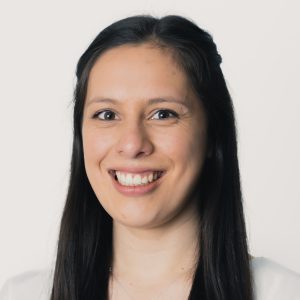Iona, the EDIT lab’s newest PhD student, reflects on what she learnt while applying for PhD programmes and her best tips for success.
Applying for a PhD can be a stressful time, particularly if you are also working or studying full-time. Trying to navigate different application processes and deadlines is already challenging, without the added pressure of choosing a project and supervisor for the next three or four years of your life. Like many people, my PhD application experience was full of ups and downs. In 2020, I applied to four studentships, had two interviews, but received no offers. I was incredibly disappointed but I learnt so much during that application cycle and when I applied again the following year I received several offers, including my top choice with the EDIT lab.
In an effort to spare others from having to learn the hard way, here are some of the things I wish I’d known earlier.
Picking a PhD project or programme
It sounds obvious, but only apply to projects you would accept, or better, be super excited to accept. I wasted time on applications for amazing projects in cities I would never have wanted to move to, and only realised when a rejection email was accompanied by relief rather than disappointment. Your PhD experience will depend as much on your social network and life outside of academia as the research itself, so location shouldn’t be overlooked.
 In the first year, I also submitted applications for projects that weren’t a great fit, but were the best of the ones in the catalogue. This became really obvious when I struggled to answer “why do you want to do this particular PhD” in interviews. It’s much better to focus your energy on projects which you really care about, or wait until a better fit comes along, not least because you’ll need that enthusiasm to motivate you throughout your PhD.
In the first year, I also submitted applications for projects that weren’t a great fit, but were the best of the ones in the catalogue. This became really obvious when I struggled to answer “why do you want to do this particular PhD” in interviews. It’s much better to focus your energy on projects which you really care about, or wait until a better fit comes along, not least because you’ll need that enthusiasm to motivate you throughout your PhD.
Having said that, be open to new areas and new skills. Focus on projects that include the skills and topics you are interested in and want to learn, not just projects which perfectly match what you already know. It’s also worth thinking about how these skills align with your future career plans. A PhD is a training programme, so an idea of what it will train you for will strengthen your applications.
If there are no projects matching your interests, don’t be afraid to develop your own project proposal. I avoided this in my first application cycle because I was worried that it would take up too much of my time, but the PhD I’m currently doing is one I proposed myself. As well as enabling you to match the project to your interests, it’s also a great opportunity to begin working with a future supervisor, understand how they work and start to build that all-important supervisory relationship.
 On selecting a supervisor, consider the supervisor’s working style as well as the research background and reputation. Your relationship with your supervisor can make a huge difference to your experience of a PhD, so finding a good supervisor is as important as finding an interesting project. An informal call with a prospective supervisor is a great way to learn a bit more about each other before applying. The first time I applied, I treated these like I was being interviewed, and was afraid to ask too many questions, but it’s a two-way street. The second year, I asked questions about what working hours they expected, the lab culture, and how often they met with their students, which gave me a much better idea of what I would be signing up for. If you can, speak to their current students, who can provide a real insight into what your experience would be like. This was one of the most useful things I did, and most good supervisors are happy to put you in touch!
On selecting a supervisor, consider the supervisor’s working style as well as the research background and reputation. Your relationship with your supervisor can make a huge difference to your experience of a PhD, so finding a good supervisor is as important as finding an interesting project. An informal call with a prospective supervisor is a great way to learn a bit more about each other before applying. The first time I applied, I treated these like I was being interviewed, and was afraid to ask too many questions, but it’s a two-way street. The second year, I asked questions about what working hours they expected, the lab culture, and how often they met with their students, which gave me a much better idea of what I would be signing up for. If you can, speak to their current students, who can provide a real insight into what your experience would be like. This was one of the most useful things I did, and most good supervisors are happy to put you in touch!
The actual application
One of the most frustrating parts of applying to PhD programmes is that every studentship asks for a slightly different set of forms, personal statements, and CVs, which each ask slightly different questions. The first time around, I tried to write a bespoke personal statement and CV for each studentship from scratch. This was incredibly time consuming, and due to the clustering of deadlines resulted in four pretty shoddy applications.
The second time around, I spent much longer writing and improving one template personal statement to make it the best I could. Then, I highlighted the sentences which could be adapted for each application, such as a sentence about why the project matched my interests, and another about how the studentship would support my career ambitions. This meant for each application, I only had to re-write a handful of sentences.
I also found it difficult to understand what different programmes were looking for. I later realised that some programmes publish their selection criteria (the GW4 MRC DTP and the LISS DTP are great examples), and others hold applicant guidance seminars, which are excellent resources.
Managing PhD applications
Most of the funded studentships in the UK have deadlines between November and February, with lots clustered around Christmas and New Year. The first year, I started looking for studentships in late October, and soon found myself lurching from one deadline to the next. The second year, I started around September, which gave me enough breathing room to write my own project proposal and also meant I could take a much-needed break over Christmas. It’s advice that everyone gives, but starting early really is the best way to manage the deadlines and reduce stress.
I also learnt how to structure my days so that I could work productively and sustainably throughout the application season. The first year, I wrote all my applications in the evenings and on weekends, when I was tired after a full day or week of work. This meant I rarely had the energy to fully focus or work efficiently, which created a cycle of working longer hours to catch up and feeling even more tired and unproductive. I ended up working every day of the week, on top of my full-time job, and by the end of January I was predictably exhausted.
 The second year, I made two major changes, which completely transformed my experience. First, I was able to change my working hours at my job to 4.5 days a week, which meant I had some dedicated time to work on my PhD applications during the day. Second, I started getting up earlier to do an hour of PhD work before my actual job. Working on applications when I had enough energy to focus properly meant I was much more productive and efficient, meaning I spent much less time overall on PhD applications. These changes also meant I could take proper time off on weekends, and being able to maintain hobbies and a social life made a huge difference to both my wellbeing and my energy levels throughout the application process.
The second year, I made two major changes, which completely transformed my experience. First, I was able to change my working hours at my job to 4.5 days a week, which meant I had some dedicated time to work on my PhD applications during the day. Second, I started getting up earlier to do an hour of PhD work before my actual job. Working on applications when I had enough energy to focus properly meant I was much more productive and efficient, meaning I spent much less time overall on PhD applications. These changes also meant I could take proper time off on weekends, and being able to maintain hobbies and a social life made a huge difference to both my wellbeing and my energy levels throughout the application process.
Preparing for interviews
All of the standard advice for interviews applies to PhD applications: practice as much as possible, prepare some answers ahead of time, think about questions you might want to ask at the end. Having said that, there will always be a question you haven’t prepared for or one that throws you off. When this happens, don’t panic, take a second to think about your response instead of running with the first idea that springs to mind.
Final thoughts
More important than all of the practical tips I have shared, the main lesson I learned throughout my PhD application experience was that, no matter how much effort I put into each application, the outcome was also partly due to luck. There are hundreds of applicants per place for most studentships, and decisions can come down to very small differences between candidates. Almost all of the PhD students I know received at least one rejection, and in my opinion, perseverance and resilience are just as, if not more important than having a perfect CV.

